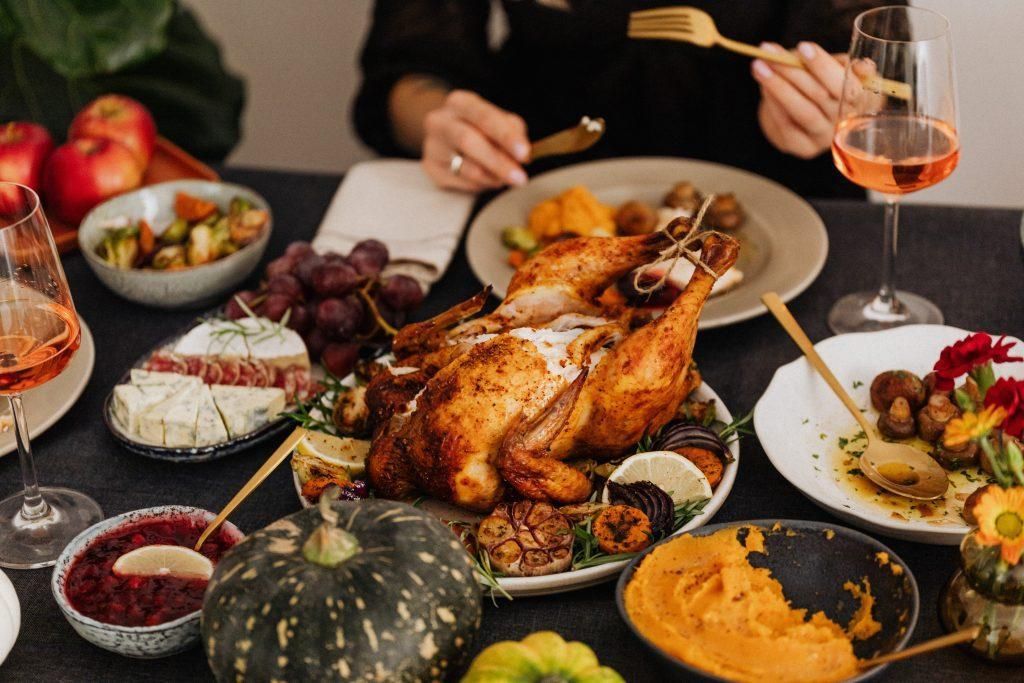Celebrating Thanksgiving While in Eating Disorder Recovery: How to Overcome Common Challenges With a Strong Support System

By Thrive Waco’s Executive Director Erin McGinty Fort, MS, MHA, LPC-S, CEDS-S
With Thanksgiving fast approaching, individuals in eating disorder recovery might be fearful of engaging in the holiday celebration. Although Thanksgiving offers an opportunity to connect with loved ones, the food-focused holiday may present challenges for those struggling to overcome an eating disorder.
By understanding the ways Thanksgiving can be intimidating for their loved one, family members can prepare to support them with compassion throughout the holiday. Below are three challenges that individuals with eating disorders may struggle with during Thanksgiving.
THREE COMMON CHALLENGES INDIVIDUALS IN EATING DISORDER RECOVERY FACE ON THANKSGIVING
-
Negative Associations With Past Thanksgivings
Individuals in eating disorder recovery may struggle to remember a Thanksgiving when their eating disorder was not active. For example, they may have engaged in restricting, binging, purging, and other disordered eating behaviors during previous Thanksgiving holidays as a way to cope with their emotions and triggers. If this is the case, they may feel more vulnerable, anxious, and uncertain about what to expect and how make it through a holiday with such a strong emphasis on eating.
-
Heightened Holiday Emotions Brought on by Family Dynamics
Holidays are often associated with family gatherings. Though connecting with family can be a source of joy and comfort, these relationships and reunions can also cause feelings of conflict and tension for many. Often, eating disorder behaviors serve as an attempt to avoid, escape, or cope with tough emotions. As a result, individuals in recovery may find it hard to face difficult feelings and situations without turning to their eating disorder to process the experience.
-
The Abundance and Array of Food
Commonly, many celebrating Thanksgiving refrain from eating throughout the day in an effort to “save up” their calories for the Thanksgiving meal. Conflictingly, individuals in eating disorder recovery are typically guided by their treatment teams to engage in regular and adequate daily food intake. For a food-focused holiday such as Thanksgiving, eating disorder treatment specialists will generally encourage their clients to eat breakfast, lunch, and dinner while also observing any other components of their treatment meal plans as normal.
Individuals with eating disorders may already feel like it’s “wrong” to eat other meals in addition to the central Thanksgiving feast. The social pressure to abstain from eating before the main event may increase their sense of anxiety over following their recovery plan, especially if they are the only ones eating prior to the meal.
HOW FAMILY MEMBERS CAN EXTEND THEIR SUPPORT THIS THANKSGIVING
This Thanksgiving, family members can support their loved one’s eating disorder recovery by acknowledging that the holiday can be difficult for them. Since every individual with an eating disorder has unique challenges, family members can ask their loved ones how they can be most helpful to them.
In the weeks leading up to holidays, Thrive clinicians encourage clients to invite their family or other members of their support system into nutrition and therapy sessions. Incorporating their family into these sessions provides a safe and supportive space to openly discuss the elements of the event that will be challenging and identify needs to be aware of. Together, the care team, family, and individual can collaborate on a game plan to put into action if struggles arise during the holiday.
After Thanksgiving, family members may consider checking in with their loved one, which can offer an opportunity to recognize their loved one’s progress, even if struggles are involved.
FOR CLINICAL SUPPORT
To learn more about Thrive’s eating disorder treatment and family support services, reach out to Thrive.
About the Author
Thrive Waco’s Executive Director Erin McGinty Fort, MS, MHA, LPC-S, CEDS-S
Erin is a licensed professional counselor and supervisor in the state of Texas and has her graduate degrees in both Counseling and Health Administration. She is a Certified Eating Disorder Specialist through the International Association of Eating Disorders Professionals (iaedp), which allows clients to rest assured that they are receiving care from a highly trained, competent, and skilled provider in the area of eating disorders. She is a professional member of both iaedp and the Academy for Eating Disorders. She has specialized training in anxiety disorders, trauma, and perinatal mental health.
She has regularly provided eating disorder training and conference presentations to medical and mental health professionals.
A transplant from the Midwest, Erin has embraced Texas as her home. When not working at Thrive Waco, she enjoys spending time with her husband, daughter, and furry son.








